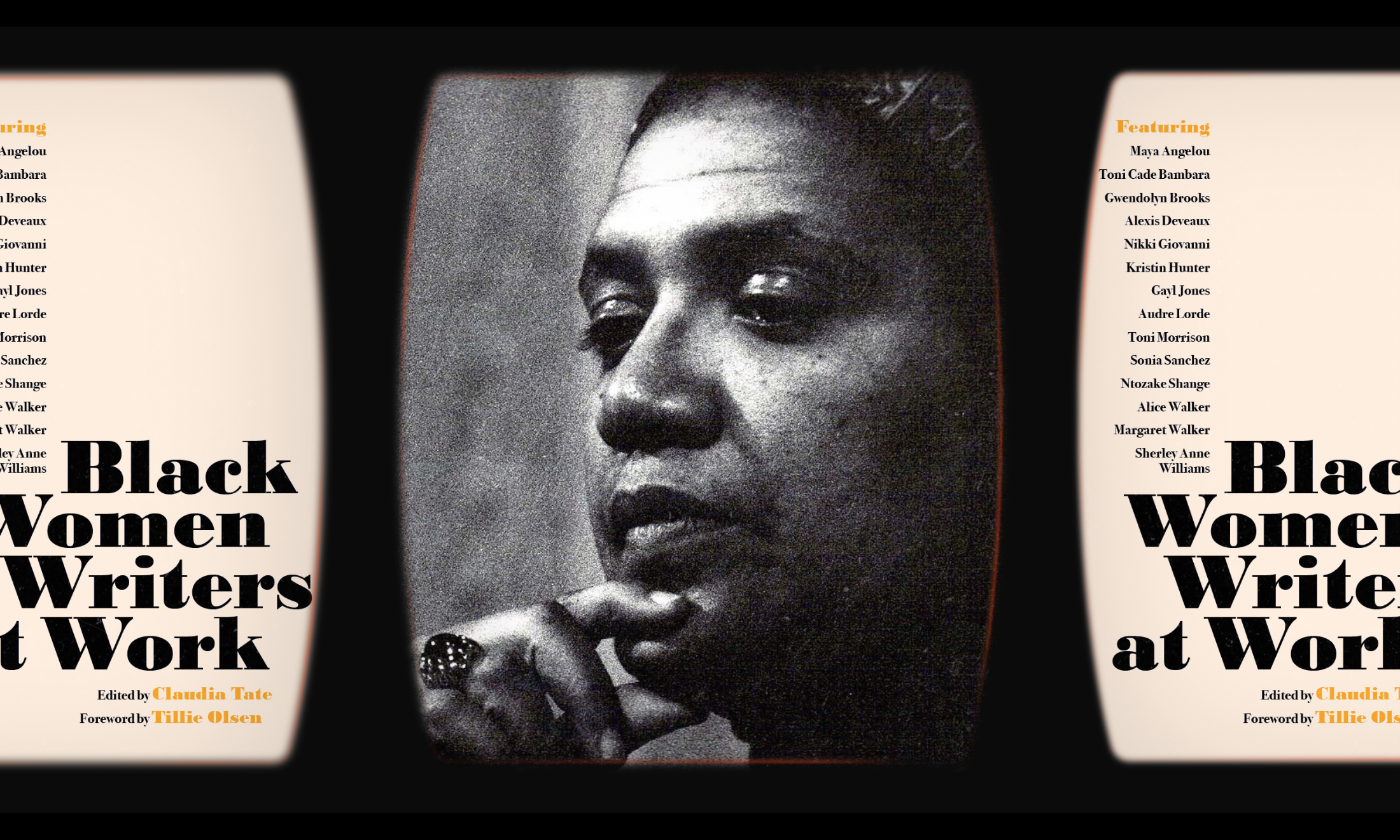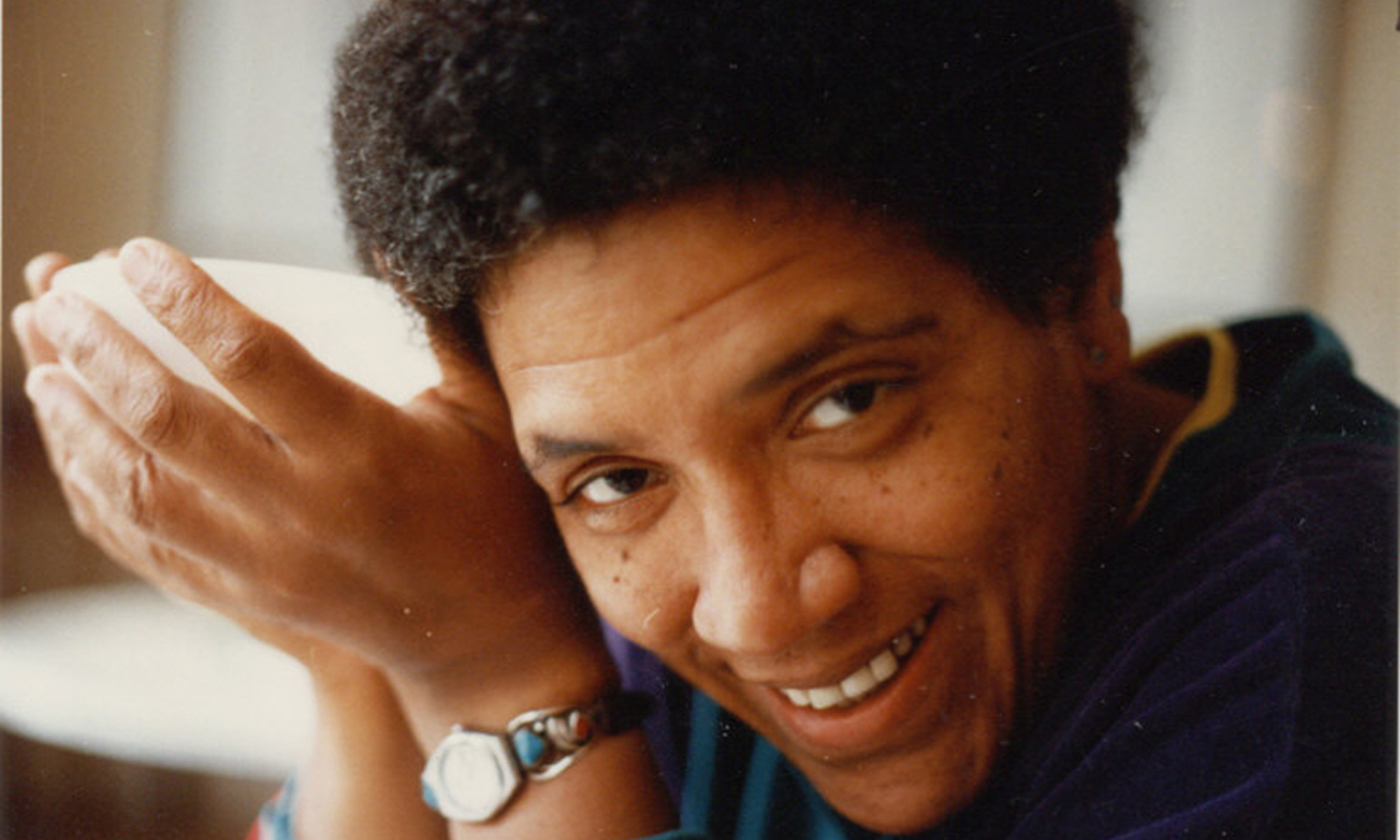‘I cannot be categorised’: in the words of Audre Lorde
In an extract from exclusive interviews with Claudia Tate from 1983, Audre Lorde tells us why she writes and whom she writes for.
Claudia Tate
15 Mar 2023

K. Kendall
First published in 1983, Black Women Writers At Work is an invaluable contribution to Black feminist literature. Claudia Tate’s book includes interviews with Toni Morrison, Maya Angelou, Alexis De Veaux and many more. The below extract is taken from Claudia Tate’s candid interview with Audre Lorde, where they discuss why she writes, whom she writes for and why survival is a victory.
Claudia Tate: Have your critics attempted to stereotype your work?
Audre Lorde: Critics have always wanted to cast me in a particular role from the time my first poem was published when I was fifteen years old. My English teachers at Hunter High School said that a particular poem was much too romantic. It was a love poem about my first love affair with a boy, and they didn’t want to print it in the school paper, which is why I sent it to Seventeen magazine.
It’s easier to deal with a poet, certainly with a Black woman poet, when you categorise her, narrow her down so that she can fulfil your expectations, so she’s socially acceptable and not too disturbing, not too discordant.
I cannot be categorised. That has been both my weakness and my strength. It has been my weakness because my independence has cost me a lot of support. But you see, it has also been my strength because it has given me a vantage point and the power to go on. I don’t know how I would have lived through the difficulties I have survived and continued to produce, if I had not felt that all of who I am is what fulfils me and fulfils the vision I have of the world, and of the future.
C.T.: For whom do you write? What is your responsibility to your audience?
LORDE: I write for myself and my children and for as many people as possible who can read me, who need to hear what I have to say – who need to use what I know. When I say myself, I mean not only the Audre who inhabits my body but all those feisty, incorrigible black women who insist on standing up and saying “I am and you cannot wipe me out, no matter how irritating I am, how much you fear what I might represent.” I write for these women for whom a voice has not yet existed, or whose voices have been silenced. I don’t have the only voice or all of their voices, but they are a part of my voice, and I am a part of theirs.
“I feel I have a duty to speak the truth as I see it and to share not just my triumphs, not just the things that felt good, but the pain, the intense, often unmitigating pain”
My responsibility is to speak the truth as I feel it, and to attempt to speak it with as much precision and beauty as possible. I think of my responsibility in terms of women because there are many voices for men. There are very few voices for women and particularly very few voices for black women, speaking from the centre of consciousness, from the I am out to the we are and then out to the we can.
My mother used to say: “Island women make good wives; whatever happens they’ve seen worse.” Well, I feel that as black women we have been through all kinds of catastrophe. We’ve survived, and with style.
I feel I have a duty to speak the truth as I see it and to share not just my triumphs, not just the things that felt good, but the pain, the intense, often unmitigating pain. It is important to share how I know survival is survival and not just a walk through the rain. For example, I have a duty to share what it feels like at three o’clock in the morning when you know “they” could cut you down emotionally in the street and grin in your face. And “they” are your own people.
“We must remember and comfort ourselves with that fact that survival is, in itself, a victory”
To share what it means to look into another sister’s eyes and have her look away and choose someone you know she hates because it’s expedient. To know that I, at times, have been a coward, or less than myself, or oppressive to other women, and to know that I can change. All of that anxiety, pain, defeat must be shared. We tend to talk about what feels good. We talk about what we think is settled. We never seem to talk about the ongoing problems. We need to share our mistakes in the same way we share our victories because that’s the only way learning occurs. In other words, we have survived the pain, the problems, the failures, so what we need to do is use this suffering and learn from it. We must remember and comfort ourselves with that fact that survival is, in itself, a victory.
I never thought I would live to be forty, and I feel, “Hey, I really did it!” I am stronger for confronting the hard issue of breast cancer, of mortality, dying. It is hard, extremely hard, but very strengthening to remember I could be silent my whole life long and then be dead, flat out, and never have said or done what I wanted to do, what I needed to do because of pain or fear… If I wait to be assured I’m right before I speak, I would be sending little cryptic messages on the Ouiji board, complaints from the other side.
“I write for those women who do not speak, for those who do not have a voice because they/we were so terrified, because we are taught to respect fear more than ourselves”
I really feel if what I have to say is wrong, then there will be some woman who will stand up and say Audre Lorde was in error. But my words will be there, something for her to bounce off of, something to incite thought, activity. I write not only for my peers but for those who will come after me, to say I was there, and I passed on, and you will pass on, too. But you’re here now, so do it. I believe very strongly in survival and teaching. I feel that is my work.
This is so important that it bears repeating. I write for those women who do not speak, for those who do not have a voice because they/we were so terrified, because we are taught to respect fear more than ourselves. We’ve been taught that silence would save us, but it won’t. We must learn to respect ourselves and our needs more than the fear of our differences, and we must learn to share ourselves with each other.
Black Women Writers at Work is available via Haymarket Books here. Join Haymarket Books for the launch in London on 17 March 2023. Link to tickets here.
The contribution of our members is crucial. Their support enables us to be proudly independent, challenge the whitewashed media landscape and most importantly, platform the work of marginalised communities. To continue this mission, we need to grow gal-dem to 6,000 members – and we can only do this with your support.
As a member you will enjoy exclusive access to our gal-dem Discord channel and Culture Club, live chats with our editors, skill shares, discounts, events, newsletters and more! Support our community and become a member today from as little as £4.99 a month.









